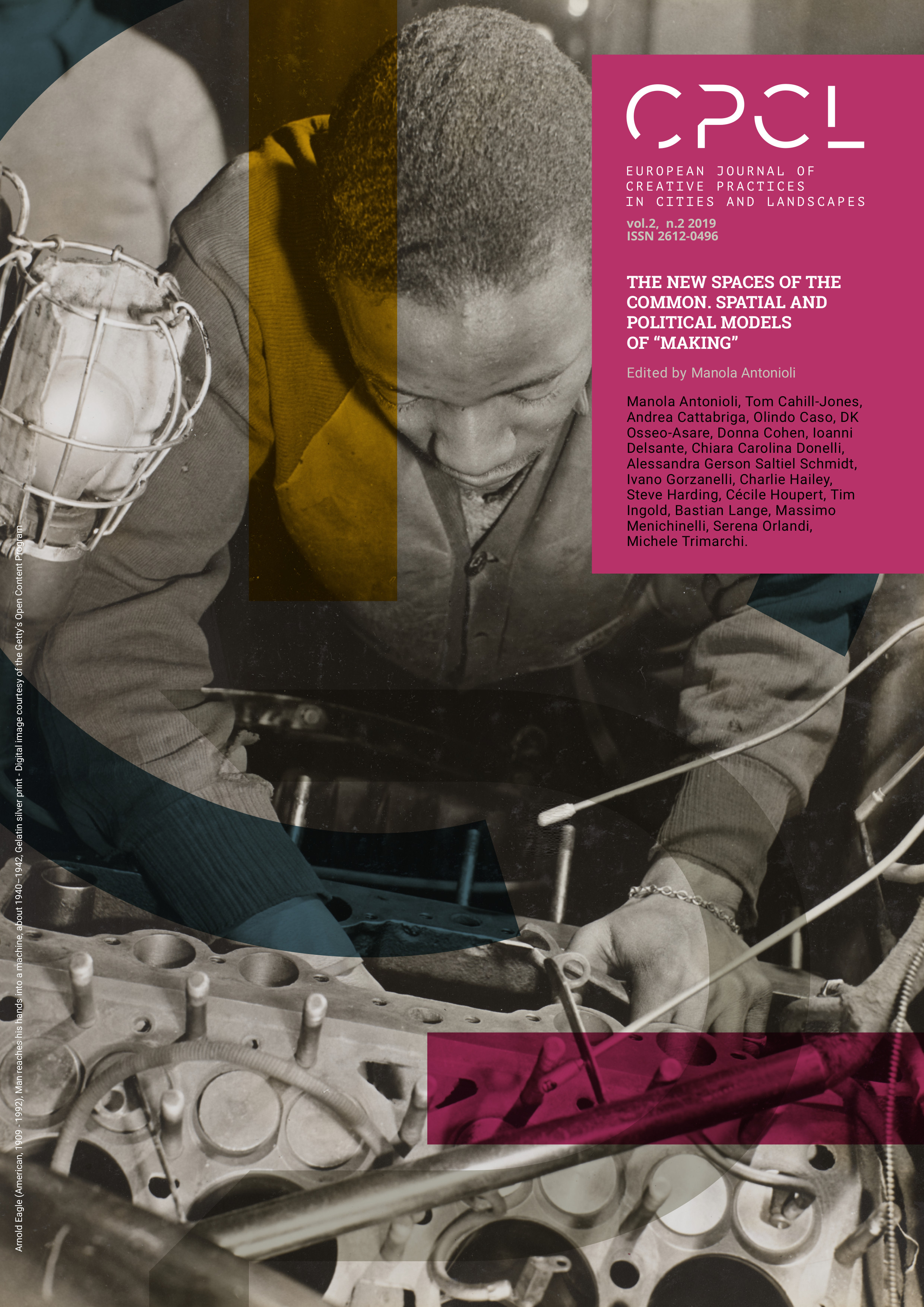Public libraries and “Making.” Experiences in the Netherlands
DOI:
https://doi.org/10.6092/issn.2612-0496/9547Keywords:
public library, makerspace, third place, public interiors, cultural infrastructure, hybrid buildingAbstract
The public library holds a key position in the present geography of the urban public realm, as it emphasizes the centrality of self-directed culture in contemporary society by mirroring the processes of individual empowerment underpinned by technological changes. It transforms the public space in a place of collective action and individual participation, contributing to forming the urban commons in the contemporary splintered society. At present, visiting a library is an urban public act of collective participation / inclusion. The crucial condition for this is the paradigmatic transition from a passive knowledge-consumption model to an active knowledge-production model – by which libraries increasingly position ‘making’ at the intersection of public culture and public realm, bringing performative spaces and creative opportunities within the public sphere of all citizens. How do library buildings accommodate these public relationships, and in how far are they successful in doing it? The article proposes a theoretical underpinning framework for the development of the public library in the context of the contemporary socio-cultural conditions in order to position recent experiences in the Netherlands. The aim is to enlighten the current relationships between urban commons, making culture, and the architecture of the public library with an eye on future developments.Published
2020-06-25
How to Cite
Caso, O. (2019). Public libraries and “Making.” Experiences in the Netherlands. European Journal of Creative Practices in Cities and Landscapes, 2(2), 185–200. https://doi.org/10.6092/issn.2612-0496/9547
Issue
Section
Practices
License
Copyright (c) 2019 Olindo Caso
Copyrights and publishing rights of all the texts on this journal belong to the respective authors without restrictions.This journal is licensed under a Creative Commons Attribution 4.0 International License (full legal code).
See also our Open Access Policy.





